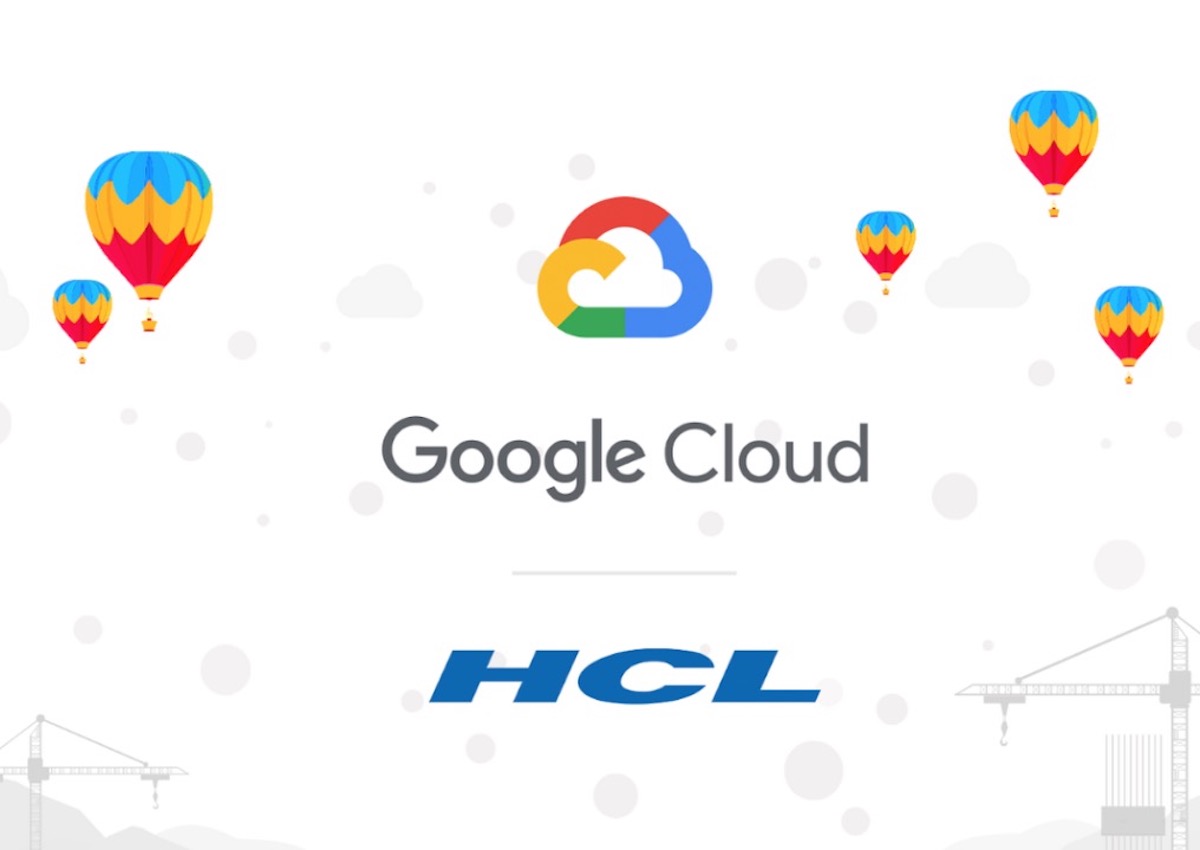 Chris Booker
| 18 June 2020 |
Chris Booker
| 18 June 2020 |
HCL Commerce and Google Cloud Platform partner up

HCL Commerce has recently agreed a strategic partnership with Google Cloud. We explore what this means and how it will benefit customers.
A Partner View…What does this mean for invested customers?
The partnership will make Google Cloud HCL’s preferred cloud platform for deployments of its Commerce software (formerly known as WebSphere Commerce) and potentially other products in HCL’s wider portfolio in the longer term. It’s important to point out that HCL Commerce will still be supported and certified on other cloud platforms should customers be already using or wish to deploy on these (Amazon AWS, MS Azure, IBM Cloud, IBM/Redhat OpenShift), as well as on-premise.
How does this help the platform?
With Google Cloud this will provide public cloud capability on a global scale, with secure and elastic infrastructure to power businesses’ eCommerce strategies. The partnership will also provide another option for HCL Commerce to deploy to private and hybrid cloud by leveraging Google Anthos. This will build on the IBM private cloud offering and provide choice to customers between OpenShift from Redhat/IBM, and Google’s Anthos. This helps businesses to be more fluid with regards to their choice of cloud, and how they migrate between them over time. It also insulates clients from each clouds proprietary services, and what could be considered cloud lock-in.
What does this announcement mean for HCL Commerce customers?
Google Cloud Platform (GCP) will enable organisations to continue their investment in what has become one of the most trusted eCommerce platforms powering some of the largest retailers, and business to business customers around the world, and delivering in excess of $100 billion in annual revenue, and growing.
The benefit to customers is realised in the time to establish a platform, which has been cut from months to weeks or days. The operational costs have been reduced in comparison to the old hypervisor world we have been used to for the last ten years. More importantly, the ability to scale on demand when traffic surges and visitor numbers demand can now be automated through autoscaling, rather than experiencing infrastructure bottlenecks and having to provision new servers.
Upgrading and applying fix packs is also much less onerous and costly. We have recently upgraded a client from v9.0.1.8 to v9.0.1.11 in a matter of hours (yes, you read that correctly, hours) and immediately deployed and had this ready for regression testing by the DeeperThanBlue Unify QA team.
Expect to see QuickStart rapid implementation packages from accredited and experienced business partner’s like DeeperThanBlue. This will help customers implement rapidly in timescales previously unheard of for WebSphere Commerce/ HCL Commerce but still allow them to grow into the platform over time, maximising their investment and removing the need to re-platform every few years.
Why is this important and big news for HCL?
As HCL Commerce develops its future roadmap we expect to see it leverage other technologies in the Google Cloud portfolio. These will assist in improving the customer experience by helping turn insights into action through data-driven strategies that employ artificial intelligence, machine learning and tighter integration and closed loop analytics with Google Marketing Cloud. Also expect to see improved reporting and business intelligence utilising Google’s acquisition in Looker.
These changes demonstrate innovation from HCL Commerce and are a step on the journey to the full micro services architecture that eCommerce vendors seek. All of the major eCommerce vendors that have been successful over the last decade are guilty of building what has been termed a monolithic application. Most have flirted with creating a cloud offering in the last 5 years, but in reality they have moved on-premise software to a cloud hosting service with very little innovation other than more flexible commercial terms and packaging. Each has faced its own challenges with these cloud offerings which are well documented. HCL Commerce by comparison is addressing this with v9 and making its eCommerce proposition more componentised and cloud native.
What does this mean for Google?
We see this as confirmation that Google is a trusted platform for eCommerce; Google Cloud Platform has quickly become the go-to platform for eCommerce vendors, with Shopify, BigCommerce and CommerceTools all selecting GCP as their platform of choice.
However, the main difference here is that whilst these competing vendor eCommerce platforms run on Google Cloud, there is no working partnership. In contrast, HCL Commerce and the Google go-to market team will be working hand-in-hand to provide an enterprise class eCommerce solution. It will give Google and its sales team another reason to talk to its own customers and prospects about the solutions that run on its platform. It moves its proposition from one of being a cloud infrastructure and middleware provider to one with market-leading applications and another reason to talk to medium and large businesses.
What about data privacy and locality?
Both Google and HCL Commerce assure customers that Google has no ownership of its clients’ data, with it continuing to belong to the customer. This can’t be said for all eCommerce platforms. What about data locality? Google has a number of data centres in regions around the world, so if keeping data within a locality is a key requirement, then Google could be a very good fit.
Multi-Cloud still an option?
As we have pointed out earlier, HCL Commerce is keen to ensure customers have a choice of where to deploy. They may have already made a selection and investment in a preferred cloud provider or wish to deploy on private/ hybrid cloud on premise. All of these options remain open.
At DeeperThanBlue we have projects where we are deploying new HCL Commerce v9 customer projects on Google Cloud Platform and Amazon AWS. This builds on other applications we have already deployed to these platforms for other use cases. In addition, we have over 5 years experience of running HCL Commerce/ IBM WebSphere Commerce on IBM Cloud as well as Rackspace.
What does this mean to you?
To be frank, with IBM’s divesture of WebSphere Commerce and its commerce and marketing (Unica) technologies to HCL in July 2019, a number of industry experts were both shocked and concerned, as we were at DeeperThanBlue. HCL weren’t known for eCommerce application software. However in less than 12 months they have hired an experienced team, developed a robust roadmap (you can read our roadmap review on LinkedIn Pulse), and are about to execute and deliver a major version release of HCL Commerce v9.1 on the 23rd June 2020 at their virtual summit. Plus, they have agreed a partnership with one of the worlds most proven cloud providers, Google.
What does this mean for you, the customer? They have invested significantly, and from what we have seen will continue to do so, reimagining the platform for a cloud native world. This translates in to allowing you, the customer, to run faster with digital transformation, innovating in your market by introducing new services and capabilities, whilst reducing operational costs and time to implement. This has to be a win. HCL Commerce still has one of the most comprehensive feature sets in the eCommerce market, and where required you can plug-in best of breed offerings through RESTful API’s.
Looking at HCL’s product roadmap for the immediate term, this focusses on delivering a world class next generation store that uses a headless model, helping merchandisers optimise how they trade the store, helping customers discover products and continuing to evolve their cloud native platform.
How can DeeperThanBlue help?
At DeeperThanBlue we have been migrating a number of our IBM WebSphere Commerce clients to the new HCL Commerce v9 cloud native platform. These migrations have been from both v7 and v8 of IBM WebSphere Commerce. We are a Google Cloud Platform partner, but also have experience deploying and running on multiple cloud providers, as well as on-premise. If you would like to know more please get in touch.
Chris Booker – Sales & Marketing Director
Related Content
How to choose the right digital eCommerce partner
When beginning your digital eCommerce journey, it’s so important that you choose the right technical partner. The best choice atFind out more
How to become a pack leader in eCommerce
In 2020, online shopper numbers across the globe grew by a phenomenal 9.5% year-on-year in the midst of the pandemic,Find out more
What to look out for when re-platforming your eCommerce business
Re-platforming is a huge business decision that impacts all levels of your operation. If you’ve already made the decision toFind out more

